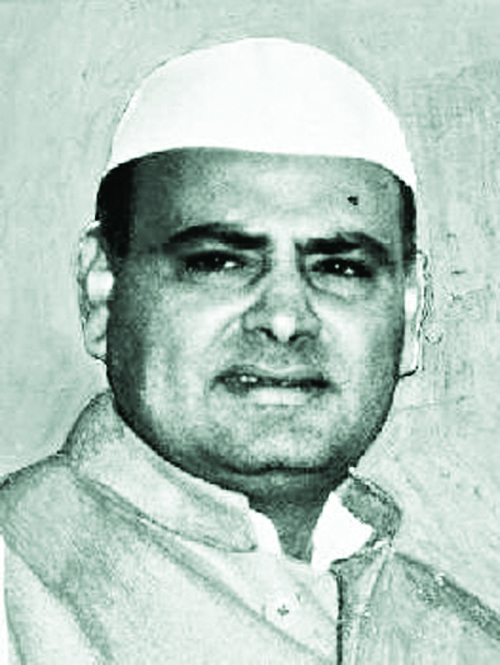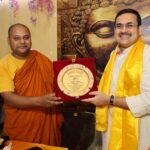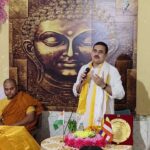Forgotten by his own people
- By : Anirban Ganguly
- Category : Articles

By the time he died at the age of 48 in September 1960, Rahul Gandhi’s grandfather Feroze Gandhi had played many roles, had accomplished many feats, and had left a distinct imprint on of India, especially on her Parliamentary traditions. Feroze had a high degree of maturity as a leader and a Parliamentarian – rare would be those who might dispute that fact. That he is chosen to be forgotten by his own people and relegated to the margins of the “family” pantheon is another discussion altogether. Read This – Beyond politicisation of rape Feroze Gandhi’s nearly forty-eight years were action packed and more importantly for us, demonstrated the evolution of his public persona from an active freedom fighter, underground activist to an exceptionally deft and incisive Parliamentarian, to a man of the people, grassroots leader, and above all a mature leader and human being who created waves, earned accolades, admirers and adherents across the social and political spectrum. Read This – Visions of a modern minister Feroze earned all of these not because he was the son-in-law of Rahul Gandhi’s great-grandfather – Jawaharlal Nehru – but because he had succeeded in carving out for himself a clear and undeniable public space – through the grit and dint of hard work, through his ebullience and his capacity to outshine many others when it came to taking on and in exposing the putrefaction that had started setting into the system under Jawaharlal Nehru. While Rahul Gandhi at 46, as per the admission of his own people and family loyalists, is still undergoing the process of becoming mature, his grandfather had already achieved remarkable maturity around this age and at 43 was shaking the Parliament, not through bluff-bluster, half-truth and threats of imaginary earthquakes as Rahul often childishly does, but by mastering and grasping every detail and by “speaking to the point.” Such meticulousness and unassailable marshalling of facts and their fearless and unrestricted articulation in Parliament, eventually earned Feroze the sobriquet of “Giant Killer” and an “investigative Parliamentarian” par excellence. Swedish journalist Bertil Falk in his interesting biography of Feroze Gandhi, for example, quoted some of Feroze’s Parliamentary colleagues who witnessed his maiden speech on the Mundhra scandal on December 6, 1955, “His fellow Parliamentarian D.C. Sharma, felt hearing Feroze’s speech was like “reading a detective novel”, saying that he wondered whether “am I listening to a tale of adventure, or am I listening to the tale of a big financial swindle perpetrated in this country or somewhere else?” As Falk observed, “here for the first time, Feroze showed his rare ability to meticulously collect facts from different sources. Like a jigsaw puzzle, he arranged them so that a picture of cleverly conducted misappropriation became apparent. By that feat, Feroze laid the foundation of being called a Giant Killer. On top of that, he showed an analytical ability to make sense of his discoveries.” Interestingly at 46, Rahul still appears to be bereft of all these traits that his grandfather had mastered and displayed. His Parliamentary innings from 2004 has been a long phase filled to the brim with a brew of a forbidding emptiness. It was as an outstanding and fearless Parliamentarian that Feroze came to be known as in the last years of his life and yet he never lost the grassroots connection. When he made his entrée in Rae Bareli, Feroze worked hard, this is how people actually remembered him years after he had died and his name had been nearly erased from among those with whom he had worked. Falk recorded how people who had seen Feroze at work recalled that the “development of education, roads, water-canals, business – all this was started by Feroze during his time.” “We will not be able to give the same amount of respect that we give to him to anyone else”, they commented. The outstanding investigative Parliamentarian that he was, Feroze did not shine only in the rarefied reaches of the Lower House but was an equally hands-on leader, with an earthy connect and acceptance when it came to nursing his constituency. “We loved him a lot”, one remembered, “All the good things a leader should have, Feroze had it in him. He would meet everybody with the same affection, whether he was a junior volunteer or a senior…” Even two decades after his death members of his constituency still remembered Feroze with warmth, “One thing I can never forget”, recalled a relative of Jawaharlal who had gone to canvass for Arun Nehru at Rae Bareli in 1980, “I went to the interiors of [Rae Bareli]…and it was so difficult to reach there. I went there somehow – people told me that several years ago Feroze Gandhi came here. But after his death, nobody has come. You’re the first person.” Such bonding and affection can only be commanded by a leader who has reached great heights of maturity and of public commitment. While Feroze had already reached that height by the time he was in his early forties, Rahul appears to have reached nowhere and in comparison to his grandfather, appears as a political pygmy. Sheila Dixit was right in pointing at Rahul’s immaturity, but Amit Shah asked a bigger and more fundamental question that the Congress ought to answer, “Why foist an immature Rahul then”, Shah had asked, “on the people of Uttar Pradesh” and on the people of India as a whole?

















